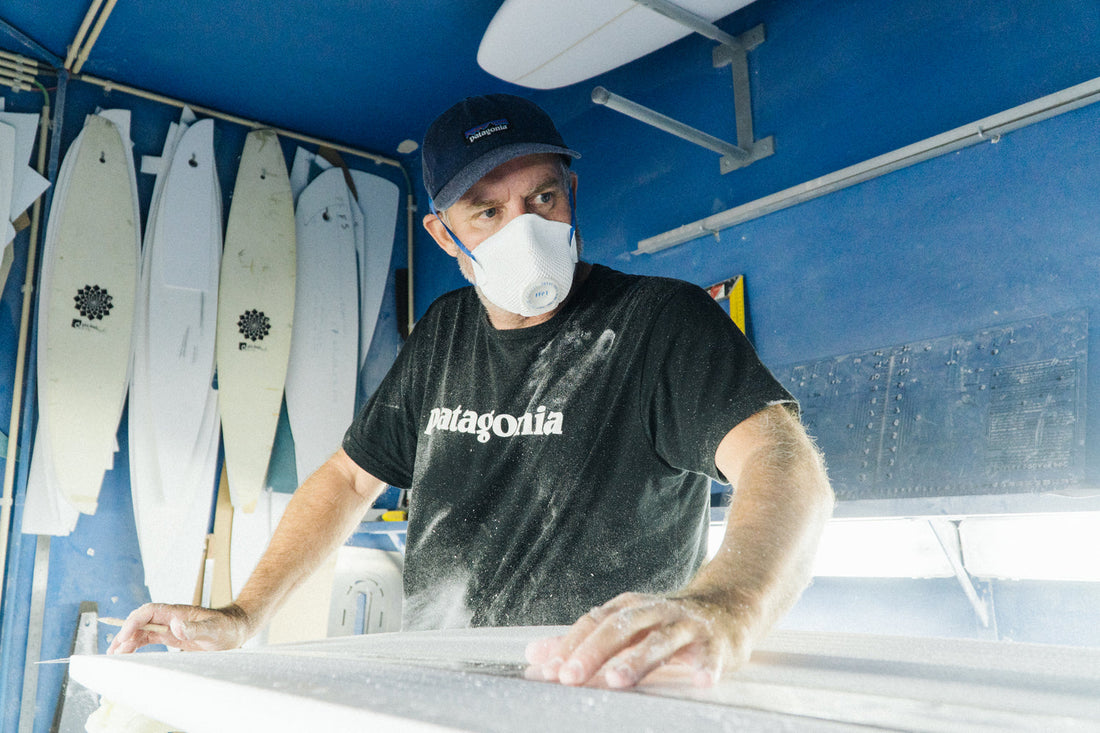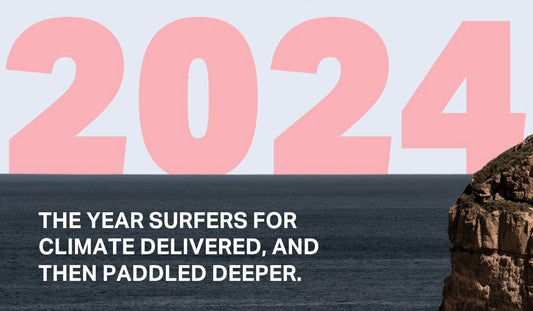Ask Gary McNeill his thoughts on surfboards and he's keen to emphasise the importance of building something that lasts. Gary’s been shaping since he was just sixteen years of age, when shaping was more of a necessity rather than a luxury. Shaping boards for his friends set him up for where he is today- a bespoke shaper of high-performance, unique surfboards, with a dedicated following that includes well-known surfers and musicians. Talented free-surfer and environmentalist, Dave Rastovich, is a loyal customer and friend of Gary’s for many years, forging a symbiotic relationship of listening to one another's requirements and applying feedback. Musicians Jack Johnson and Ziggy Alberts have benefited from Gary’s shaping skills, as has surf filmmaker Taylor Steele.
Gary’s range of Treetech Flax boards look the business. The central core is a Markofoam Enviroblank made with 25% recycled content, retaining the same strength evident in its marketplace counterparts. Biotex Flax, a type of engineered, natural flaxseed cloth, is set within Entropy bio-resin that features plant-based content and is also recyclable.
“The producers of Biotex Flax have undertaken testing programs and had independent testing done. When compared to other products, results show that Biotex Flax provides high-level performance, is strong, safer to handle, and critically is better for the environment.”
Like a fine wine, flaxseed cloth, or flax, ages nicely and will always keep its earthy, natural look - which according to Gary, adds to the aesthetics beyond its eco-credentials. Flax fibre is soft, lustrous and flexible, yet stronger than cotton fibre but less elastic. Flax, along with sisal, cotton, coir, ramie, jute, and bamboo fibres are commonly applied in the reinforcement of polymer composites, or in this case, a bio-based epoxy resin.
Flax fibre cloth starts by being cultivated from the bast of the flaxseed plant, which is just under the surface of the stem. While flax fibre's one of the oldest known fibres for textiles, only recently has its application as a progressive alternative to fibreglass been achieved. It's a material that's readily available, has good mechanical properties, easy to process, low density, and is biodegradable.
The glassing process is where Gary’s surfboards boast their longevity, as a double layer ensures a strong finish that’s often side-stepped in cheaper, thinly glassed boards on the market.
“The feedback is that the boards are light and lively. I believe the flax and extra glass gives the boards a nicer weight, much like a pro-weight PU [polyurethane foam] but it takes away the too-light feel.”
Gary’s boards have proudly proven to stand the test of time, with one of Rastovich’s boards lasting years- featuring in surf movies and various online clips that are worth digging out. It’s worth remembering that elite-level surfers often go through a helluva lot more surfboards than your regular frother, so it bodes well for Gary’s reputation of surf craft longevity to see his boards being lovingly spared from trash cans and landfill sites.
The make-up of a Gary McNeill Concepts surfboard begins with an environmental mindset, which then transitions to the application of high-quality, low-impact materials. The final piece of the puzzle is simply building it to last, enabling the owner to care for their board with the same physical and emotional connections as its shaper.
To learn more about Gary’s career and listen to his advice, check out our podcast episode which is available via the following channels:
Spotify
Soundcloud
Apple Podcasts
Google Podcasts
Instagram: @garymcneillconcepts




